Heparin 25000 5ml Injection
$60.00 – $150.00Price range: $60.00 through $150.00
| Pack Size | Price | Price / Unit | Quantity | |
|---|---|---|---|---|
| 3 Packs | $60.00 | $20.00/ unit | ||
| 5 Packs | $90.00 | $18.00/ unit | ||
| 10 Packs | $150.00 | $15.00/ unit |
Looking for bulk / B2B pricing? | Send Inquiry |

| SKU | 11407 |
| Manufacturer | Shinepro Life Sciences Pvt. Ltd. |
| Categories | Anticoagulant |
| Delivery Time | 10 - 14 Working Days |
| Strength | 25000 IU / 5ml |
Introduction to Heparin 25000 5ml Injection
Heparin 25000 5ml Injection is an anticoagulant medication commonly used in hospitals and clinical settings. It is prescribed to help manage and prevent blood clot-related conditions in patients under medical supervision. The injection is administered by trained healthcare professionals.
This medication is typically used in patients at risk of developing blood clots due to surgery, immobility, or other medical conditions. Heparin 25000 is valued for its rapid onset and effectiveness in critical care and emergency situations.
Heparin 25000 5ml Injection is available in a sterile liquid form and is given either intravenously or subcutaneously. It is often used as part of a broader treatment plan that may include other medications and regular monitoring.
Uses of Heparin 25000 5ml Injection
- Prevention of Blood Clots
- Treatment of Deep Vein Thrombosis (DVT)
- Management of Pulmonary Embolism (PE)
- Prevention of Clot Formation During Dialysis
- During Cardiac and Vascular Procedures
How Does Heparin 25000 5ml Injection Works?
Heparin 25000 5ml Injection works by enhancing the activity of certain natural substances in the body that prevent blood clotting. It helps slow down the formation of clots and reduces the risk of existing clots growing larger, ensuring smoother blood flow.
This action supports the prevention and management of serious conditions like deep vein thrombosis, pulmonary embolism, and heart attacks. The medication acts quickly once administered and is especially useful in hospital settings where rapid anticoagulation is necessary for patient safety.
Side Effects of Heparin
Common Side Effects
- Injection site reactions
- Mild allergic reactions
- Mild elevation in liver enzymes
- Low-grade fever
Serious Side Effects
- Severe allergic reactions
- Osteoporosis with long-term use
- Delayed-onset HIT
- Heparin resistance
Dosage of Heparin Injection
The dosage of Heparin 25000 5ml Injection varies depending on the medical condition being treated, the patient’s age, weight, and overall health status. It is usually given under close medical supervision through intravenous or subcutaneous routes in a hospital or clinical setting.
In emergency cases such as deep vein thrombosis or pulmonary embolism, a higher initial dose may be administered, followed by maintenance doses at regular intervals. Regular blood tests are often required to monitor clotting levels and adjust the dosage to ensure effective and safe anticoagulation.
How To Manage Side Effects?
- Avoid Injury-Prone Activities
- Use Soft Toothbrush and Razor
- Inform Your Doctor of All Medications
- Stay Hydrated and Rested
- Routine Blood Monitoring
- Seek Immediate Help for Allergic Reactions
Warnings & Precautions
Heparin is a potent anticoagulant, and its use requires careful consideration of potential risks and precautions. Healthcare providers and patients should be aware of certain warnings and precautions associated with heparin injection to ensure safe and effective use. Here are important warnings and precautions:
1. Bleeding Risk:
- Heparin increases the risk of bleeding, which can be serious and even life-threatening. This risk is higher in patients with conditions predisposing them to bleeding, recent surgery, or those on other medications that affect clotting.
- Caution is advised when using heparin in patients with a history of gastrointestinal bleeding, intracranial hemorrhage, or other bleeding disorders.
2. Heparin-Induced Thrombocytopenia (HIT):
- HIT is a rare but potentially serious immune reaction that can lead to a decrease in platelet count and an increased risk of thrombosis. Monitoring for signs of HIT is essential, and heparin should be promptly discontinued if HIT is suspected.
3. Spinal or Epidural Hematoma:
- Heparin use, especially in higher doses, poses a risk of spinal or epidural hematoma in patients undergoing spinal or epidural anesthesia or spinal puncture. This can lead to paralysis.
- Caution is warranted when administering heparin in conjunction with spinal or epidural procedures, and healthcare providers should carefully weigh the risks and benefits.
4. Hypersensitivity Reactions:
- Allergic reactions to heparin, though rare, can occur. These may include skin rash, itching, and swelling.
- Patients with a known hypersensitivity to heparin should not receive the medication.
5. Renal Impairment:
- Patients with impaired kidney function may require dosage adjustments, as heparin is primarily cleared by the kidneys. Monitoring of renal function is important in such patients.
6. Priapism:
- Priapism, a prolonged and painful erection unrelated to sexual arousal, has been reported in rare instances with heparin use.
Storage
- Store Below 25°C (77°F)
- Do Not Freeze
- Protect From Light
- Keep Out of Reach of Children
- Check Expiry Date
- Use Under Medical Guidance
- Do Not Use If Discolored
Frequently Asked Questions
1. Is Heparin 25000 5ml Safe During Pregnancy?
Heparin 25000 5ml may be used during pregnancy if necessary and prescribed by a doctor. It does not usually cross the placenta, but close monitoring is required to ensure safety for both mother and baby.
2. Do I Need Regular Blood Tests While Using Heparin 25000 5ml?
Yes, regular blood tests are essential while using Heparin 25000 5ml to monitor clotting times and adjust the dosage accordingly, ensuring the medication is working effectively and safely.
3. What Should I Do If I Miss A Dose Of Heparin 25000 5ml?
Heparin 25000 5ml is usually given in a hospital setting, so missed doses are rare. If used at home, contact your healthcare provider immediately for instructions if you miss a dose.
4. Is Heparin 25000 5ml A Blood Thinner?
Yes, Heparin 25000 5ml is classified as an anticoagulant or blood thinner. It helps prevent the formation of blood clots and is used in various medical conditions where clotting is a concern.
| Pack Size | 10 Packs, 3 Packs, 5 Packs |
|---|---|
| Price/Unit | $15/unit, $18/unit, $20/unit |
Be the first to review “Heparin 25000 5ml Injection” Cancel reply
Related Products
No related Products Found

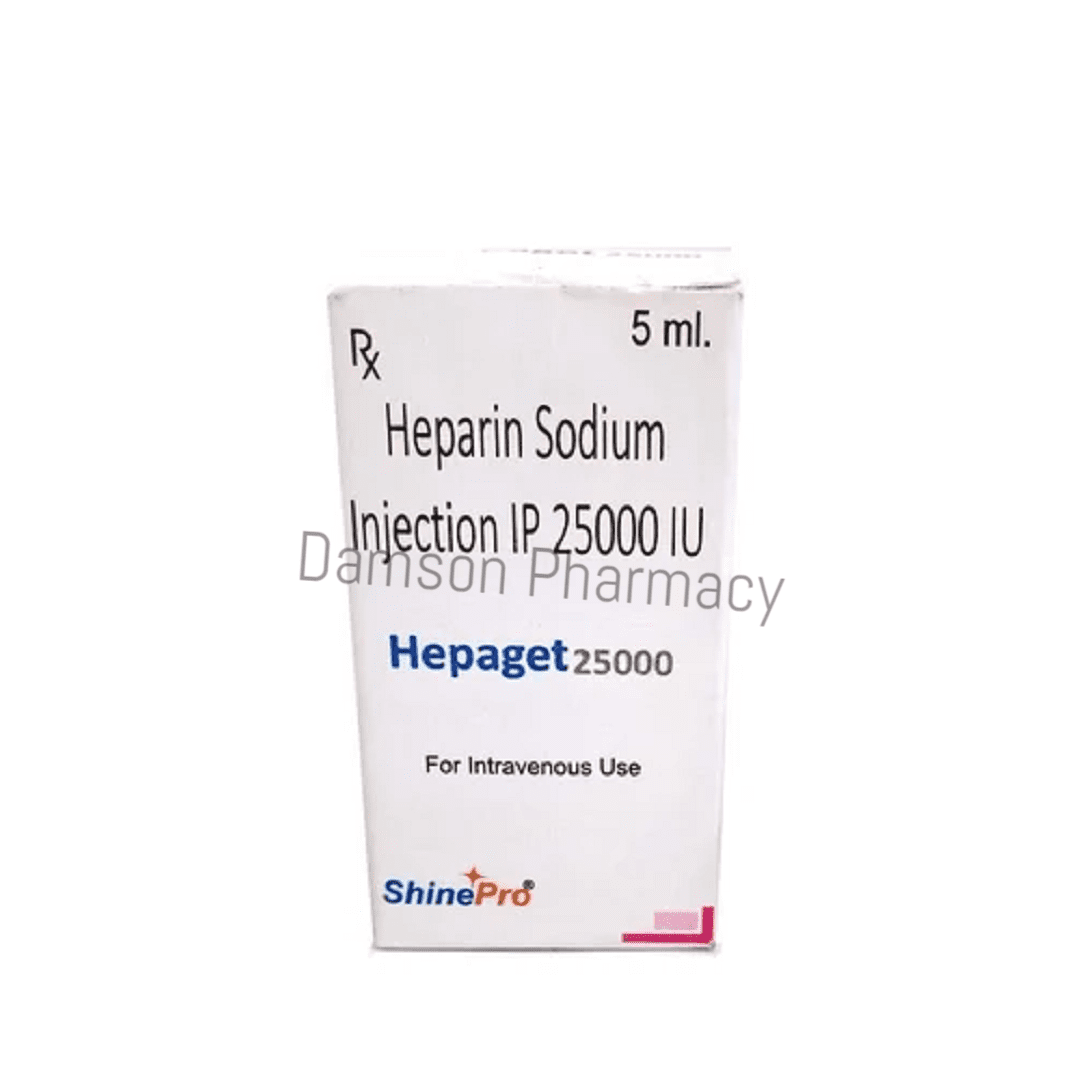
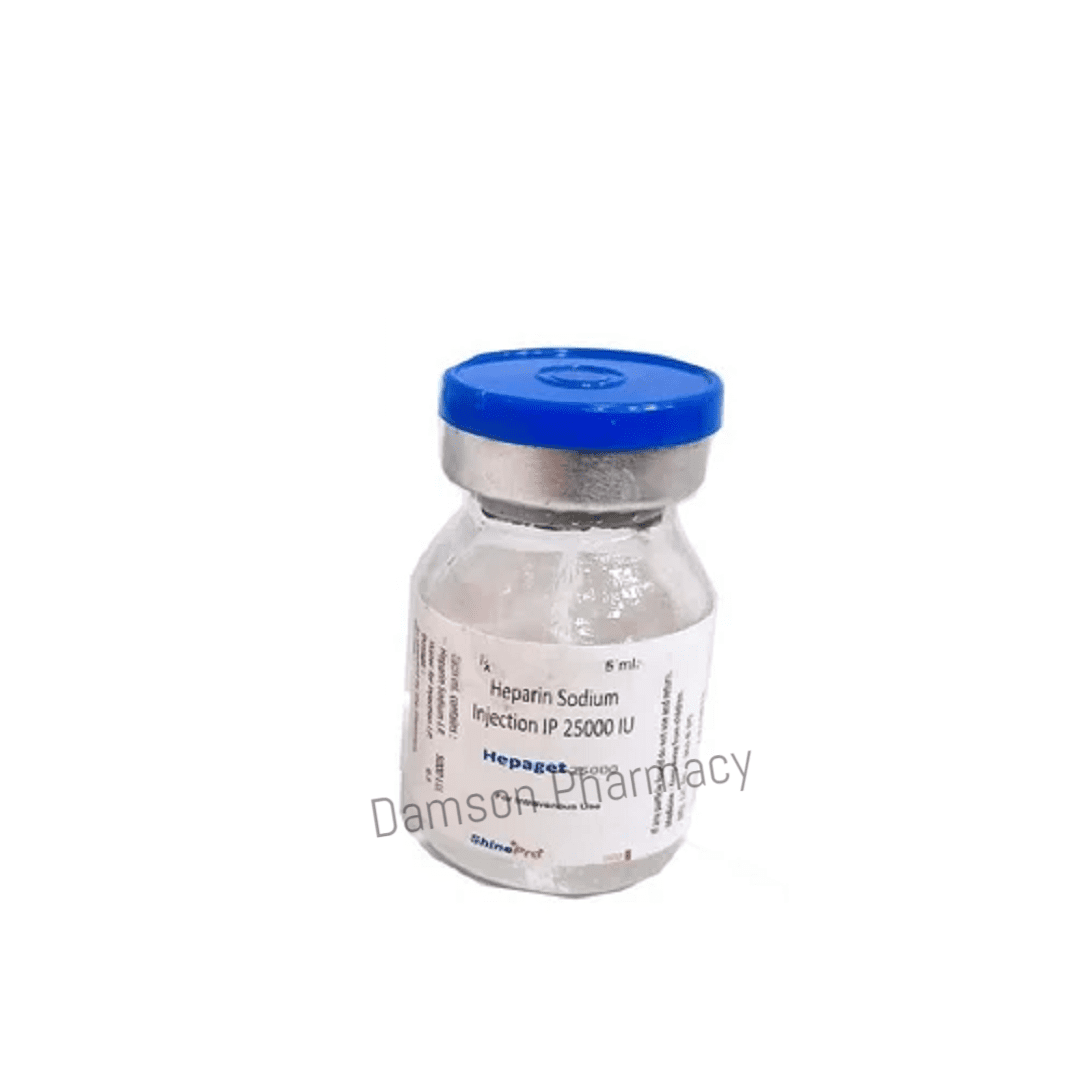
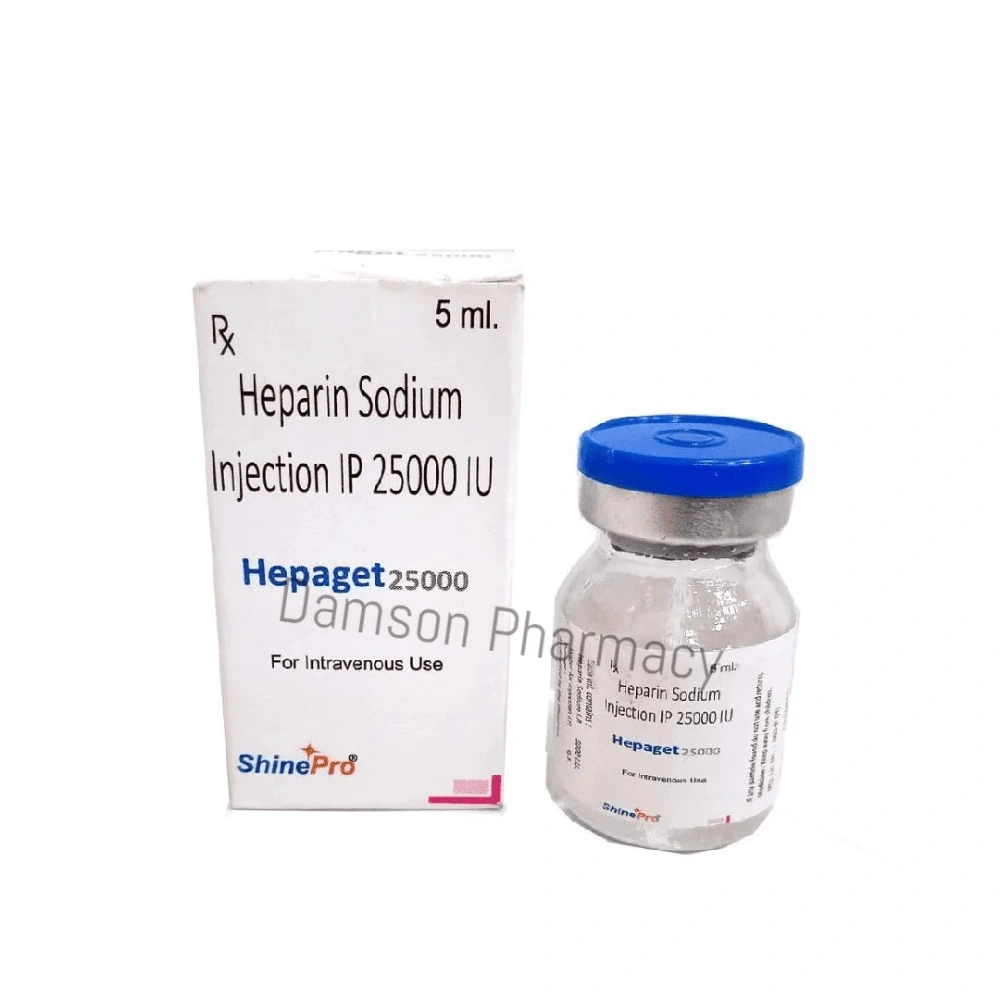
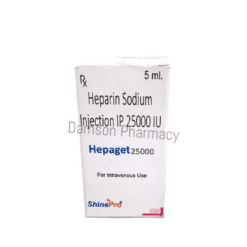
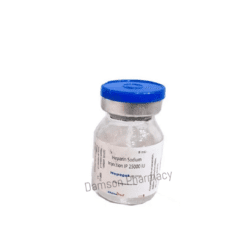
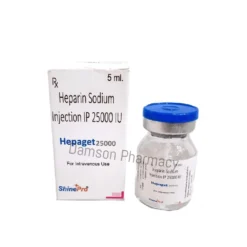
Reviews
There are no reviews yet.